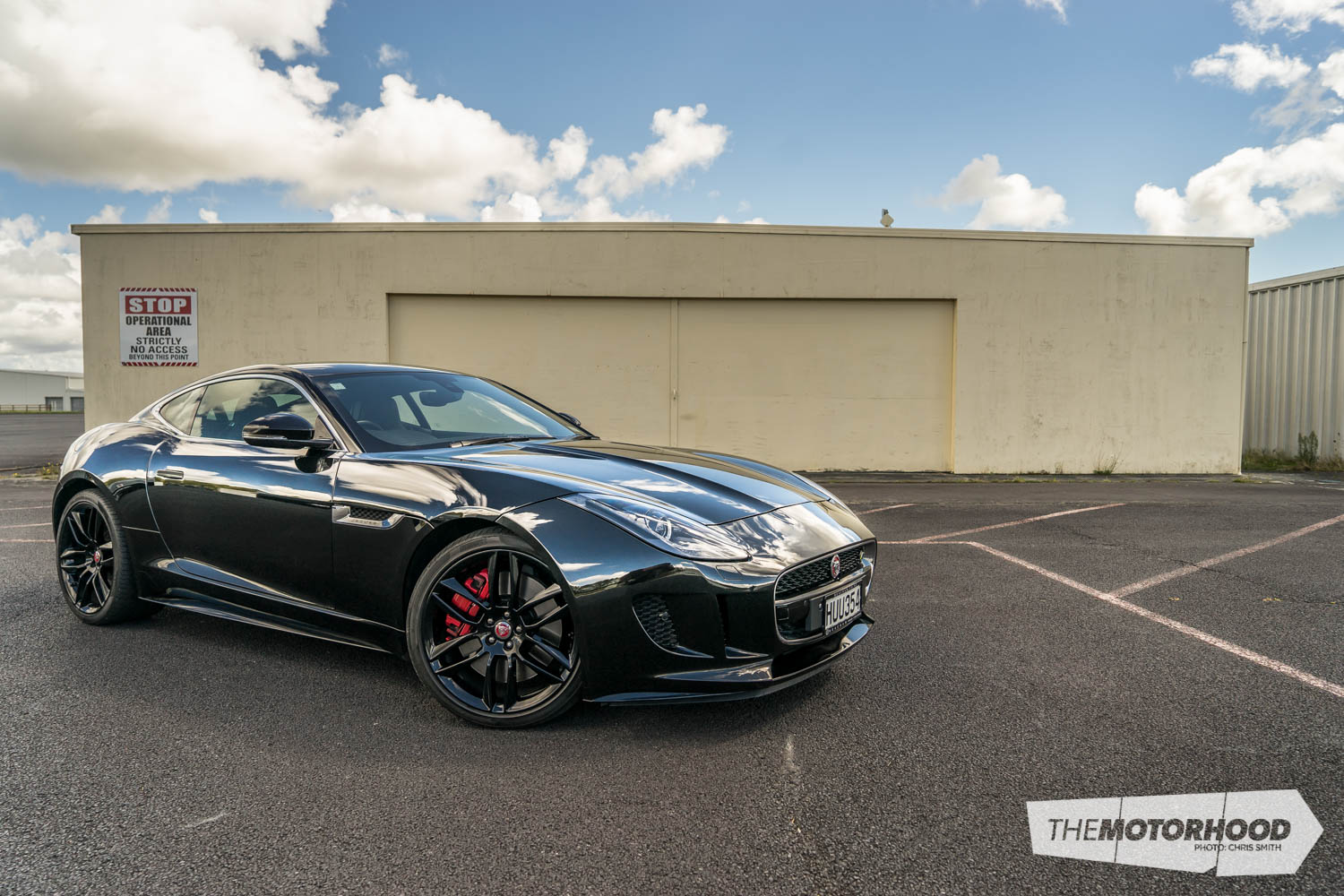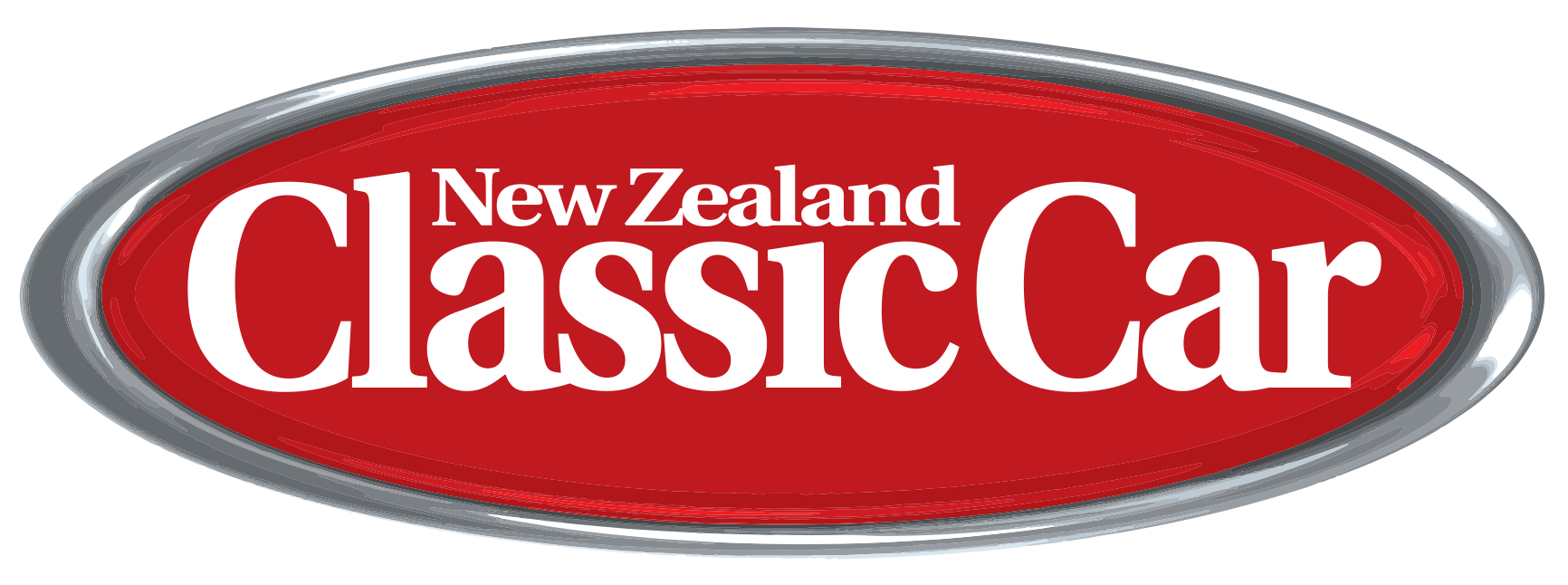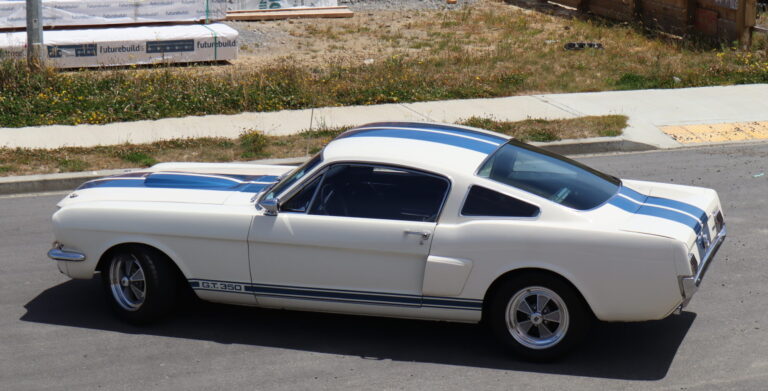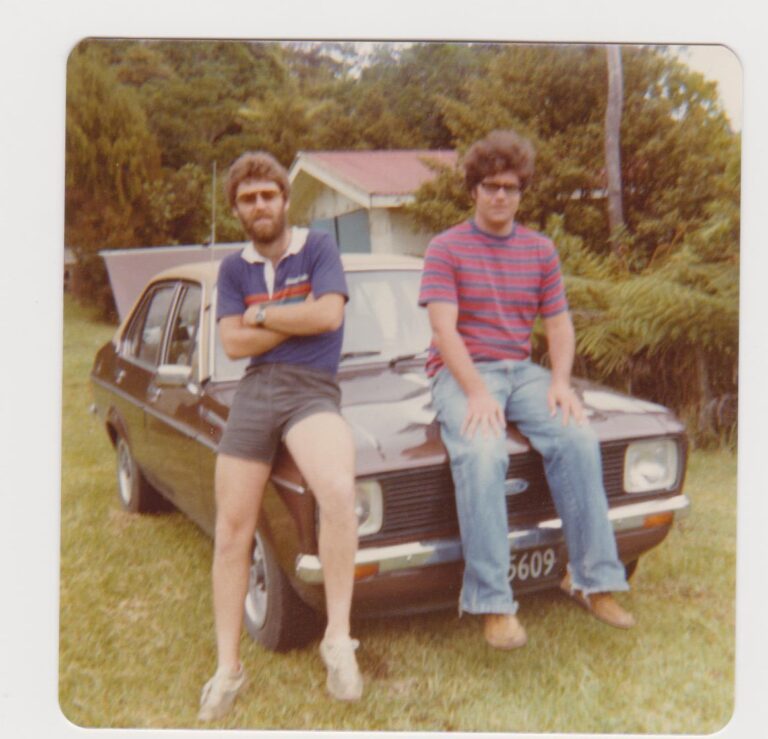In March 2014, thanks to Beacham Jaguar, I got the chance to road-test Jaguar’s new F-Type in supercharged ‘S’ form — the car that, finally, can be considered as being a genuine successor to the legendary E-Type.
At the end of my feature on that car I commented that, with the F-Type, “Jaguar had triumphantly reconfirmed its reputation as a world-leading designer and builder of sports cars. Yes, the new F-Type really is that good — and we haven’t even sampled the V8 version yet!”
Well, after bending Alex Beacham’s arm, I finally got my sticky hands on a brand-spanking-new V8 R — the coupé that sits atop Jaguar’s six-car-strong F-Type range. Let me say straight away — it was well worth the wait!
Power up

As with the supercharged V6-powered F-Types, the Roots-type twin vortex blower fitted to the V8 R snuggles into the ‘V’ of the engine, to keep everything neat and compact. Not that you can see any of this if you pop the bonnet — as with the majority of modern machinery, all that’s on show is a large plastic engine cover, presumably to dissuade owners from tinkering with the car’s important bits.
Engine bay aside, one area where Jaguar has nearly always hit the mark is with its styling, and as much as I prefer rag-top sports cars, there’s no doubt that in the looks department the F-Type coupé is an absolute stunner.
Sensational from any angle, the Jaguar’s purposeful lines are further enhanced by the graceful curve of the coupé’s roof as it flows into the F-Type’s bulging, muscle-bound haunches. There’s even a touch of classic E-Type in the car’s rear-end styling.

Mind you, no production E-Type was ever as quick as the V8 R. A top speed of 300kph (electronically governed), and a 4.2-second 0–100kph sprint time, means that this spectacularly rapid big cat is a direct rival to cars such as Porsche’s 911 and Cayman GTS, not to mention another V8-powered Brit, Aston Martin’s V8 Vantage.
That leads us to an additional comparison with the cars from Newport Pagnell — the Jaguar’s extremely well finished, leather-lined cabin is easily a match for the ostensibly more bespoke interiors of the last few Aston Martins we’ve been lucky enough to sample.
Although, don’t expect any retro nonsense such as planks of shiny walnut when it comes to checking out the F-Type’s interior — it’s decidedly non-traditional and ultra-modern.
As you’d expect, the V8 R’s cabin is a lot cosier than the convertible — although the optional panoramic glass roof fitted to our test car helped brighten up its black-on-black cockpit. That extra sunlight revealed that all the Jaguar’s controls are neatly laid out — with plenty of gadgets on hand for technocrats to fiddle around with, all controlled via the car’s dash-mounted touchscreen.
Enough prevarication — time to hit the button labelled ‘engine start.’
Extra dimension

On the road, the V8 R feels stiffer and more together than the convertible — although the drop-top F-Type could certainly not be described as being sloppy in any way. However, the addition of a roof has measurably increased the car’s rigidity, allowing Jaguar to raise spring rates, and make improvements to the already excellent adaptive damping.
As a result, despite a slight increase in weight over the convertible, the F-Type coupé boasts improved steering accuracy and agility. The convertible certainly isn’t lacking in these areas, but out on the road, the aluminum-topped V8 R adds an extra dimension of deliciousness.
As well as these upgrades, this top-of-the-line model features a second-generation version of Jaguar’s electronic active differential and, exclusively for the R, this includes a torque vectoring system that exercises a decent measure of control over wheelspin, and virtually eliminates all traces of understeer even under spirited cornering. However, the system is flexible — switch the car into Dynamic Mode and you’ll crack a big smile as you’re rewarded with a touch of easily controllable oversteer around the same corner. As well, the V8 R’s configurable dynamic system allows you to play around with other settings, and alter them to better suit your own taste and driving style.
What all this adds up to is a sports car that’s a total delight to drive — beautifully balanced and controllable, the F-Type just feels right in all regards.
Of course, you can get seriously unruly and turn all the driving aids off — although that is perhaps not recommended on public roads. As you’d expect from a rear-wheel-drive car with the V8 R’s amount of torque on tap, the resultant rubber destroying and wild, oversteer-induced slides will hardly endear you to other road users or, indeed, the boys in blue.
Thunderous performance

Eschewing the current trend for fancy dual-clutch gearboxes, the F-Type is fitted with an eight-speed auto transmission that works perfectly. Flick the console-mounted gear selector to the left and you’re into manual selection mode. When shifting gears with the steering-wheel-mounted paddles, Jaguar’s set-up may not exhibit the precision mechanical feel of Porsche’s PDK system, but it still works extremely well.
Gearbox niceties aside, floor the V8 R’s throttle and you’re greeted by a massively deep rumble and an adrenaline-pumping surge of acceleration, as the R howls off the line. Step off smartly, and the rear end will squirm around as the supercharged V8’s mountain of torque does its best to unstick the rear tyres — a trait quickly tamed as the torque-vectoring technology built into the V8 R’s electronic differential comes into play — and within a heartbeat you’ll be crossing over into licence-losing territory.
Simply put, on full throttle the R is truly sensational, and it’s not all about speed — as we found out when we turned onto an unfamiliar stretch of road. I didn’t know they’d built a tunnel here!
What to do? Well, you would, wouldn’t you?

Of course, if you were at the wheel of your granny’s Honda Jazz there’d be little point — but if you’re in a supercharged, V8-powered Jaguar, laddish behaviour is an absolute must.
Just remember to wind down the passenger’s window for the full stereo effect, exhaust on ‘loud’, and Dynamic Mode selected — time for a three-second symphony.
Although, having said that, the F-Type really isn’t into delivering polite symphonic notes. If the supercharged V6 S we sampled last year sounded something akin to the Sex Pistols — loud and snotty with a distinctive sense of British-ness — the V8 R’s soundtrack is much deeper and darker in tone. Indeed, at full bore the R’s exhaust note sounds rather like the automotive equivalent of a blood-curdling black-metal band.
If you’re not into heavy metal music — think of a Supermarine Spitfire on full power as it banks into a tight turn, and if that doesn’t paste a silly grin onto your face, it’s probably time to check to see if you’ve still got a pulse!
However, you can always choose to dial out most of that sound and fury, as via its switchable modes the F-Type is imbued with an almost Jekyll and Hyde character. Resist the urge to play around with the V8 R’s Dynamic Mode, and you’ll be in charge of a quiet, easily controllable and reasonably civilized executive express — something that the proverbial granny would find almost as easy to drive as her trusty Honda Jazz.
However, switch on all the fruity bits and you’ve got a thunderously fast sports car that can be provoked into producing some truly hair-raising sounds — from the off-beat burble of the car’s supercharged V8, right out to a boisterous, smile-inducing exhaust crackle on the over-run.
Options

With no less than six models to choose from within Jaguar’s F-Type range the potential buyer has plenty of choice — with the range-topping V8-powered cars commanding prices substantially higher than the V6 versions. This price differential is most notable for those looking at a coupé, as the V8 R commands a whopping $60,000 premium over the entry level F-Type. And, while the ‘S’ models in the middle of the range probably offer the best bang for your buck, those seeking the ultimate in outright performance (and furious sounds) should consider the V8 R coupé or the slightly slower, less powerful V8 S convertible.

I’m biased, I’ve always liked Jags, but I reckon that the F-Type is one of the best sports cars currently available. It’s fast, properly sorted, beautifully balanced and dynamic on the road, well equipped, sensational to look at, and absolutely chock-full of character.
I’ll take mine in Black Amethyst with a red leather interior, thanks.
Jaguar F-Type V8 R
Engine
- Model: Supercharged Jaguar AJ133 V8
- Capacity: 5000cc
- Max power: 405kW at 6500rpm
- Max torque: 680Nm at 3500rpm
- Fuel system: Fuel-injection
Driveline and support
- Transmission: Eight-speed ZF auto
- Suspension: F/R Independent all-round via aluminium double wishbones and telescopic dampers. Adaptive damping, electronic active differential
- Steering: Rack and pinion, PAS
- Brakes: F/R Four-wheel ventilated discs, anti-lock, traction control
Dimensions
- Overall length: 4470mm
- Width: 1923mm
- Height: 1308mm
- Wheelbase: 2622mm
- Track: F/R 1597/1649mm
- Kerb Weight: 1650kg
Performance
- Max speed: 300kph (186mph)
- 0-100kph: 4.2 secs
- Economy: 11.1l/km (combined City/H’way)
- NZ New Price: From $174,990


